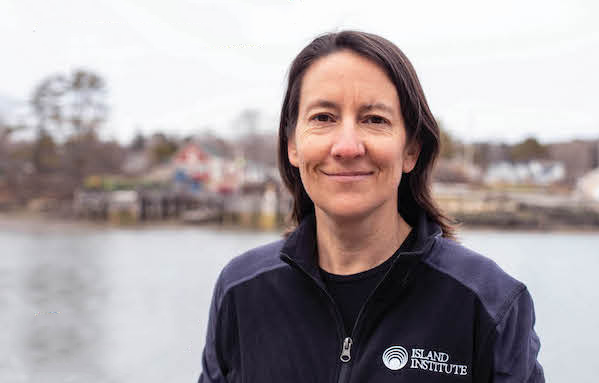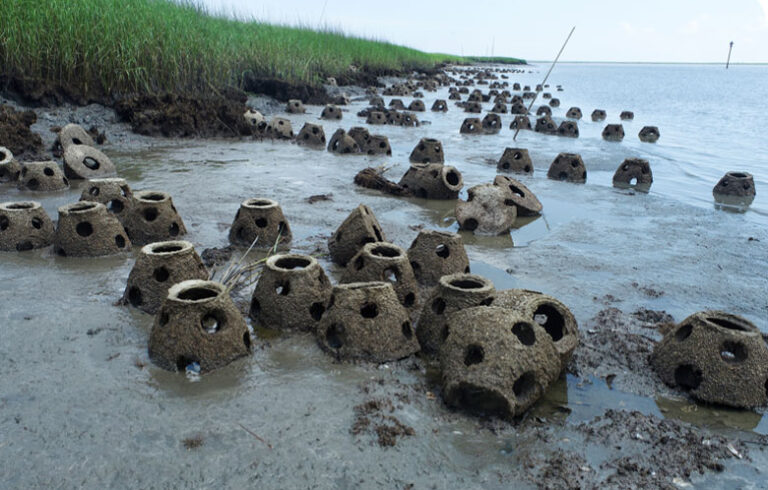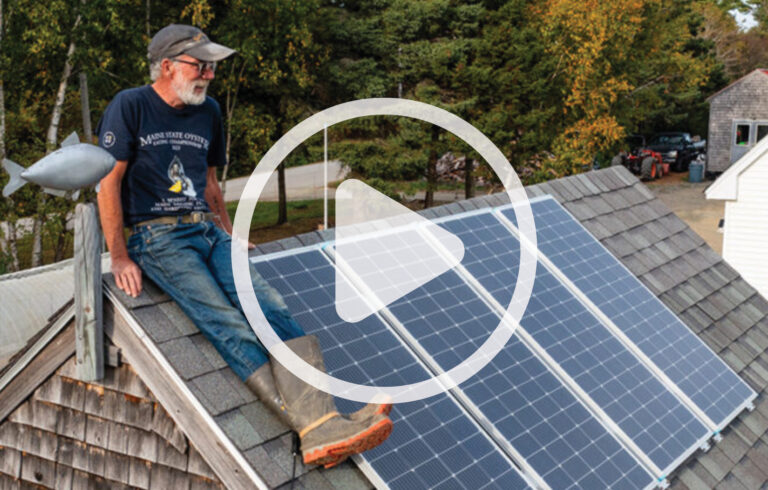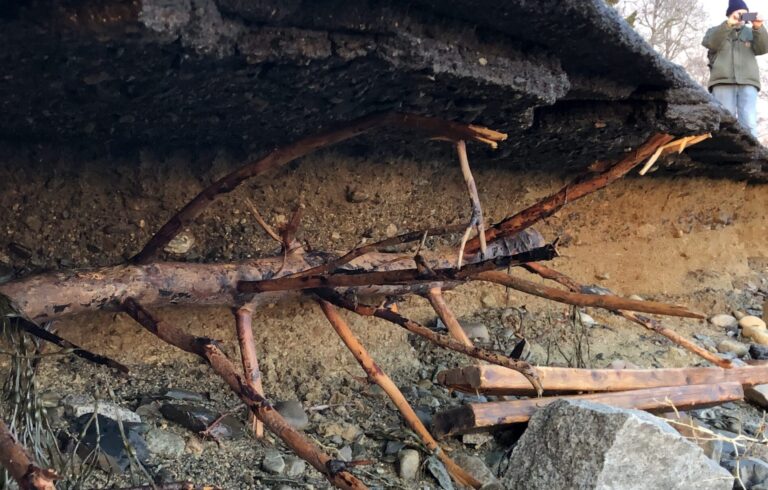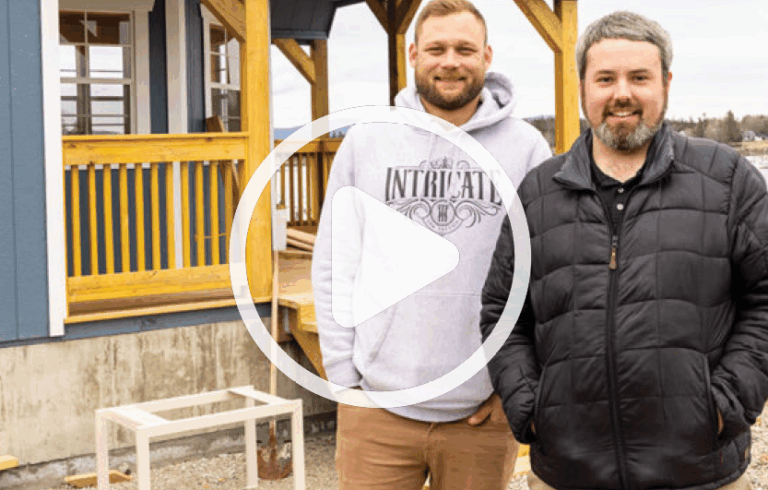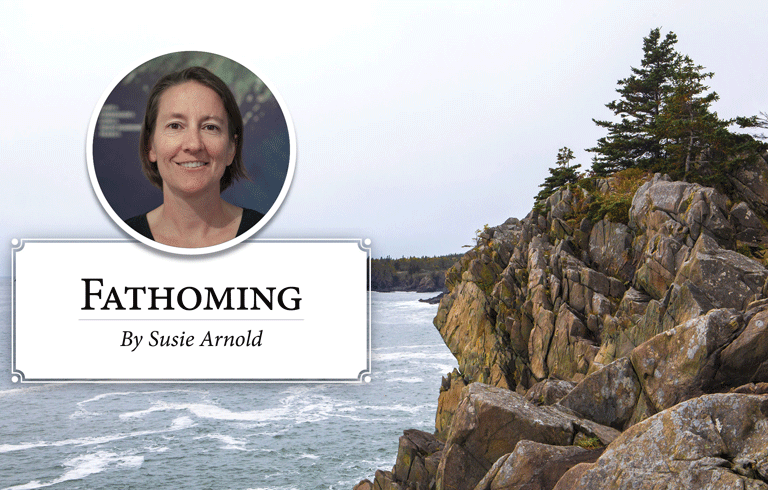Energy Innovation for Resilient Communities
Many of Maine’s coastal communities are at the “end of the line”—they are often the first to lose power in a storm and the last to have it restored. This can have devastating impacts on health and wellbeing and local economies. Island Institute partners with communities to support strategic energy planning, provide technical assistance, and implement innovative solutions to get coastal communities the reliable and affordable energy they need.
As communities develop the tools understand their energy needs and how to meet them in a changing world, they move from planning to action—pursuing affordable and independent energy options that strengthen communities’ ability to prepare for, withstand, and recover from power outages.
These efforts develop critical knowledge and partnerships that allow Maine to build out locally-owned and resilient energy production, ensuring reliable and affordable energy for all. Island Institute works with communities to build long-term economic and environmental security with a future powered by local energy and driven by community.
National Expertise, Local Solutions
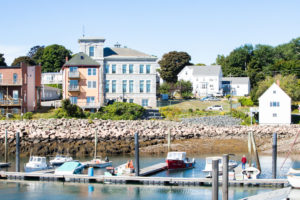
Rural coastal towns and islands face unique energy challenges that drive up costs and limit economic opportunities. To address local energy needs while improving reliability and enhancing energy security, Island Institute partners with the National Laboratory of the Rockies (NLR), to build capacity, share knowledge, and support rural communities to be innovative leaders in reliable and affordable power.
Projects are locally led and grounded in the economic realities of rural coastal towns and islands and their electrical grids. In addition to providing technical assistance to support strategic energy planning and deep dives into feasibility studies for specific technologies such as microgrids, this program creates lasting relationships with key partners such as electric utilities. The work empowers local leaders to understand technology and optimize resource use, allowing for self-reliance and locally driven solutions.
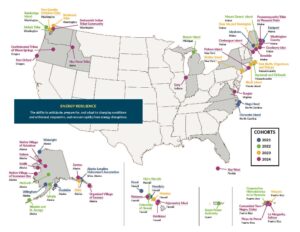
Energy Navigators Program
In partnership with National Laboratory of the Rockies, Island Institute offers technical assistance through the Navigators program. This pilot program provides free assistance in planning and analysis to support communities and businesses in a wide range of possible scenarios, including identifying and comparing energy priorities, understanding the feasibility of extending 3-phase power to working waterfronts, or modeling backup energy solutions for town offices, schools and resilience hubs.
Island Institute works closely with entities working at the local level to help them understand their needs, bolster existing expertise, and open pathways to available resources and funding. Navigators equips local decision-makers with focused support to accelerate progress toward a more resilient and affordable energy future.
Stories: Energy Innovation in Community
Read: These Are The Days in Maine
Island Institute's Susie Arnold reflects on the collective power of Maine's climate networks. The Maine Climate Change Adaptation Providers Network has worked to support Maine's efforts to address climate change.
Watch: Bombazine Oysters
Max Burtis of Bombazine Oysters (formerly Ferda Farms) is setting clean energy goals for his Brunswick-based oyster farm, and he's collaborating with Island Institute to achieve them.
Read: How nature steps up when waves get rough
When you step off the ferry onto Great Diamond Island, you might notice the inlet carved into the land past the rip rap. That inlet is the result of the “hardened” shoreline.
Watch: North Haven Oyster Company
Adam Campbell moved to North Haven in the late 1990s to become a commercial fisherman, and in the process, he became the steward of a piece of land that had long belonged to his wife’s family.
Read: Fellows Secure Major Grants for Island & Coastal Communities
Three Island Institute Fellows helped secure Community Resiliency Planning funds for host communities. We asked them to share the impacts on their island host communities.
Watch: Tremont Harbor Master's Office
During the 2024 winter storms, Tremont's town wharf was underwater and in peril of being lifted from its pilings. Watch this Story of Impact to learn about how Island Institute supported the construction of a new harbor master's office.
Read: A poor report card from Maine’s ocean
The devastating storms last winter prompt questions about the latest ocean climate science, or more specifically, what is coming this winter. We all have a role in turning the tide on these troubling trends. Our future depends on it.
Energizing Rural Communities Prize
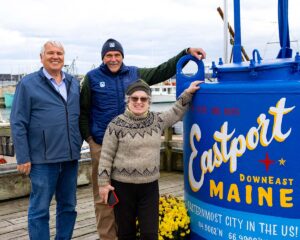 A partnership between Island Institute and the Town of Eastport, the Energizing Rural Communities prize supports the easternmost town in the U.S. to develop strategies to improve their energy systems and advance clean energy demonstration projects. Eastport was the second largest trading port in the U.S. in the late 19th century, given its robust sardine and canning industry, but the factories have since closed, In the years since a diesel substation went offline, power has become more unreliable.
A partnership between Island Institute and the Town of Eastport, the Energizing Rural Communities prize supports the easternmost town in the U.S. to develop strategies to improve their energy systems and advance clean energy demonstration projects. Eastport was the second largest trading port in the U.S. in the late 19th century, given its robust sardine and canning industry, but the factories have since closed, In the years since a diesel substation went offline, power has become more unreliable.
Unstable power along with high energy costs were among the energy resilience challenges that brought Eastport to the Energy Technology Innovation Partnership Project (ET
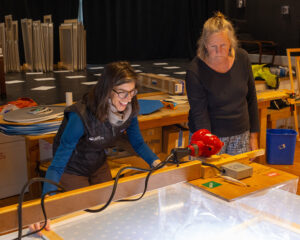 IPP) in 2021. With assistance from Island Institute and researchers at the National Laboratory of the Rockies (NLR) and Lawrence Berkeley National Laboratory (LBNL), Eastport created a strategic energy plan that included learning more about microgrid options to provide back-up power; coordinating with local energy efficiency and electrification efforts; and providing educational resources. The Energy prize has made these goals possible, including funding a local energy coordinator, weatherizing and electrifying homes, and understanding the feasibility of microgrid options for the community.
IPP) in 2021. With assistance from Island Institute and researchers at the National Laboratory of the Rockies (NLR) and Lawrence Berkeley National Laboratory (LBNL), Eastport created a strategic energy plan that included learning more about microgrid options to provide back-up power; coordinating with local energy efficiency and electrification efforts; and providing educational resources. The Energy prize has made these goals possible, including funding a local energy coordinator, weatherizing and electrifying homes, and understanding the feasibility of microgrid options for the community.
Electric Boats in Maine
Explore our toolkit for getting an e-boat on the water!
Learn about Electric BoatsCommunity Impact Fund
Learn more about our grant programs.
Explore the Community Impact Fund
